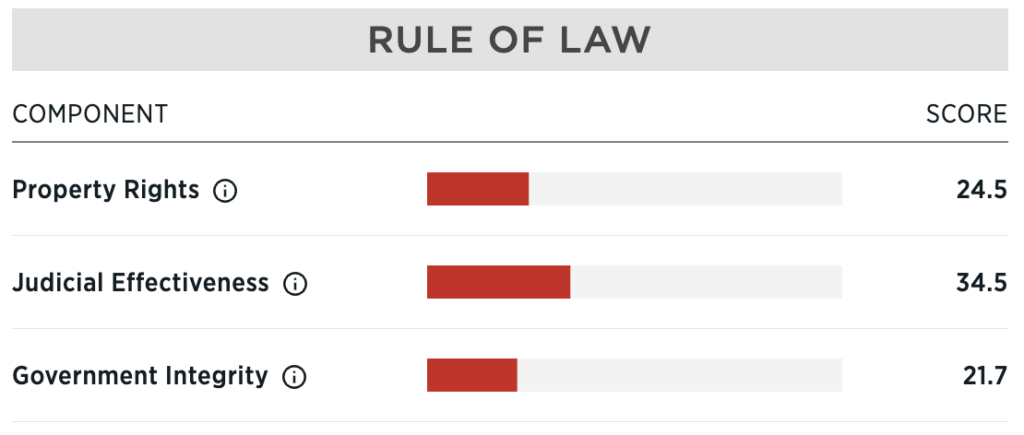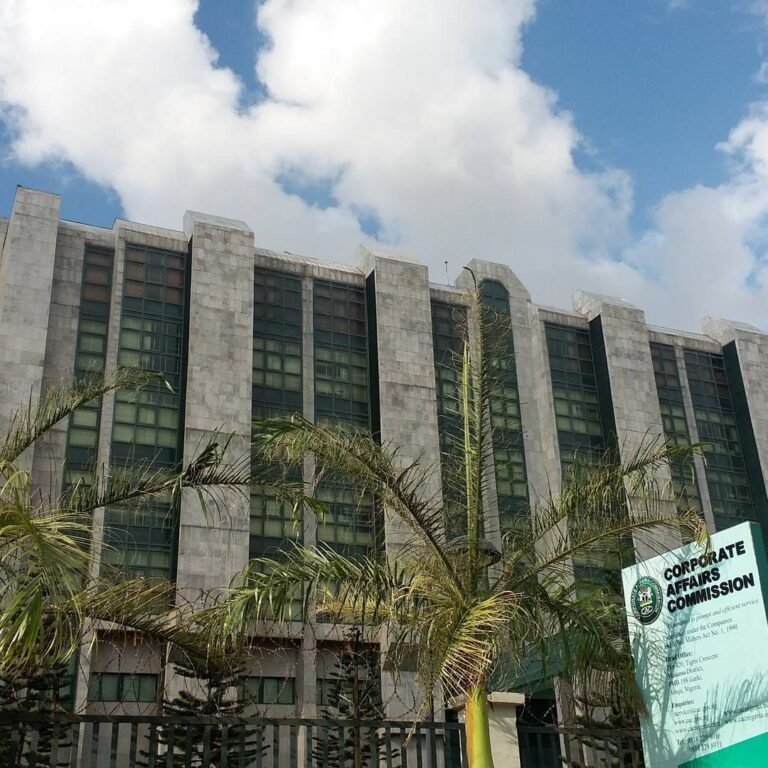It takes an average of 376 days to enforce a contract in Lagos and 476 in Kano. The inefficient judicial system threatens businesses and paints Nigeria red for potential investors.
The Human Freedom Index, a yearly publication assessing the state of freedom worldwide, reveals a disturbing picture of the state of the global economy. According to the most recent 2024 Index, the world economy remains “mostly unfree,” with the average score for economic freedom dropping from last year’s 59.3 percent to 58.6 this year, the lowest since 2001. Nations like Singapore, Ireland, and Switzerland lead the world with the highest levels of economic freedom. While countries such as Syria, North Korea, and Afghanistan lag far behind, constrained by severe restrictions on civil liberties and human rights.
The 2024 Economic Freedom Index evaluates economic policies and conditions in 184 sovereign countries from July 1, 2022, through June 30, 2023. Nigeria’s position, ranked 125th out of 184 countries, reveals the country’s continuous political instability, corruption, and human rights abuses, all of which significantly hinder its economic freedom.

One pressing challenge Nigeria faces is the need for government integrity, scoring just 21.7 percent. Corruption permeates every level of governance, from the highest offices to local administrations. According to the 2023 Corruption Perceptions Index, Nigeria scored 25 percent, bagging 145th out of the 180 countries assessed.
“At its heart, economic freedom is about individual autonomy: the freedom of choice that individuals enjoy in acquiring and using economic goods and resources.”
The Heritage Foundation
The economic freedom index also reveals a country with a defunct judicial system, with a score of 34.5 percent, signalling why corruption is widespread. Nigeria’s judicial effectiveness remains a significant obstacle. The combination of property rights, judicial effectiveness, and government integrity culminate into the index’s rule of law pillar. With 24.5, 34.5, and 21.7 scores, the indicators’ scores fall below the world average of 56.3, 48.9, and 43.9 respectively.

“On average, of the four pillars of economic freedom used in Index grading, the rule of law indicator has the lowest scores. This reflects the systemic corruption of government institutions in many countries. A robust rule of law is essential for business owners and entrepreneurs when making economic decisions.” noted The Heritage Foundation.
Business and Investment
Nigeria’s investment freedom score—45 out of 100—stands below the global average of 56.4 percent. This reflects the numerous challenges investors face, from the risk of sudden regulatory changes to issues with contract enforcement. The oil and gas sector, despite being a major attraction, remains heavily influenced by the government, adding layers of complexity and risk.


This volatile environment deters many potential investors, limiting the inflow of capital needed to spur economic growth.
Business freedom in Nigeria, an indicator of ease of doing business in the country, is also constrained, with a score of 42.9 percent. This means the business environment is fraught with challenges, including bureaucratic delays and legal uncertainties. Stringent regulations and inconsistent policy implementation further exacerbate these issues, particularly for small and medium-sized enterprises (SMEs). Though it takes an average of seven days and seven procedures to register a business in Nigeria, according to the World Bank Group’s Doing Business Archive, it takes an average of 376 days to enforce a contract in Lagos and 476 in Kano. The inefficient judicial system threatens businesses and paints Nigeria red for potential investors.
The inefficient judicial system paints Nigeria red as a destination for foreign investment and hurts entrepreneurs’ confidence. Ranking high in the ease of doing business means the regulatory environment is conducive to establishing a business, and a low score reveals the extent of regulatory hurdles entrepreneurs face in the country. The latest data on the ease of doing business by the World Bank Group scored Nigeria 56.9 percent, ranking 131 of 190 countries.
Meanwhile, Nigeria performs excellently in terms of the tax regime, largely due to the country’s low personal and corporate tax rates set at 24 percent and 30 percent respectively. As a result, the tax burden equals only 6.7 percent of the GDP. This gives the country an impressive score of 84.8, grading above the global average of 78.2 percent.

In 2022, Nigeria scored 54.3 percent in the economic freedom index, at the time, the country’s inflation rate averaged just 18.8 percent. This year, it was no coincidence that inflation already soared to 34.2 percent in June, as the country’s economic freedom took a downward trend to 53.1 percent.
By investigating the relationship among economic freedom, inflation rate, and economic growth in 23 countries, “the results of these tests [shows] economic freedom has a significantly positive effect, while inflation rate has a significantly negative effect on economic growth,” a study on the economic freedom, inflation and their impact on economic growth, reveals.
_______________
Source: Index of Economic Freedom
Data visualisation: Praise Odabi














